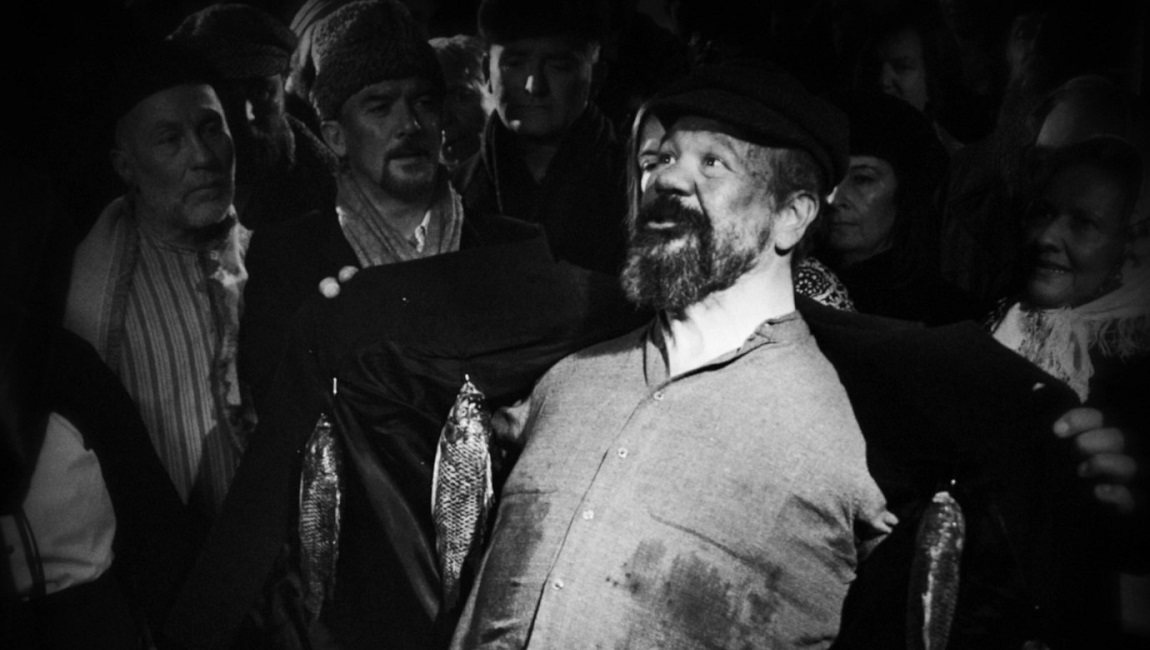Rarely does the weight of a classic so gracefully crimp under the weightlessness of an earnest successor, less keen on displacing the gravitas of the original than it is to enchant the world with renewed splendor. In Akira Kurosawa’s Ikiru, thought by many to be the director’s crowning achievement, the doddering, doe-eyed Watanabe (Takashi Shimura) wanders the streets of post-war Tokyo in search of lost time, heaving breaths of fresh air long denied him in all his decades as faceless bureaucrat. The cancer that’s spread through his stomach moves quick, but Watanabe moves quicker: in his final months, the aging widow pursues life one last time, first by grafting his everyday experiences with the zest and vitality reserved for younger men, before transplanting that same energy onto his cri de cœur, a playground for the future endlessly deferred by the institutions of the past. The two most memorable images of Kurosawa’s film, arguably, are that of Watanabe descending the stairs of a restaurant as a chorus of women wish their off-screen friend a happy birthday — a sequence perceptively noted by Mike D’Angelo as “exud[ing] a Dionysian force” — and, of course, that of Watanabe on the snow-covered swing he helped build, content with life and happy to die.
Ikiru is itself an adaptation of Leo Tolstoy’s novella, The Death of Ivan Ilyich, and the latter’s cultural influence has extended beyond Kurosawa and toward an existentialism whose articulation, tellingly, has found great import in the notion of “authenticity,” famously posed by Martin Heidegger in his 1927 treatise Being and Time. What constitutes a life well-lived: an examined life or an “authentic” one? The indeterminacy of an answer parallels that of the authenticity of adaptations; where Tolstoy’s Ivan engages in an exceedingly painful battle with illness, achieving spiritual catharsis only through considerable meditation, Kurosawa’s Watanabe encapsulates the indomitable strength of the human condition through his almost pitiful innocence — a man of simple taste and belief now awakened to the charms of life without sacrificing his moral compass, despite the plenitude of power-hungry bootlickers and hypocrites around him.
It hardly seems plausible that any remake of Ikiru would justifiably wallow in the indelible pathos so expressed by Shimura’s longing eyes, and Living, Oliver Hermanus’ fifth feature, decidedly avoids the former’s monochromatic shadow. Rather, Living reframes Ikiru’s mortal anxieties for a new stage, set in sunny, contemporaneous London. High in the city’s labyrinthine corridors of offices and bowler hats, a Mr. Williams (Bill Nighy) leads the county hall’s Public Works department in sorting through files and maintaining “skyscrapers,” individual towers of paper whose height correlates with the foremost appearance of occupation and importance. Like Watanabe, Williams is widowed and gets handed a death sentence of stomach cancer at the doctor’s; unlike Watanabe, Williams hears it straight from the doctor’s mouth, no euphemism or nicety intervening.
Much of Living’s narrative does follow the gentle course of Ikiru’s, courtesy of a screenplay penned by the Japanese novelist Kazuo Ishiguro. Where the two diverge is in style: Hermanus’ framing and compositions are, on the whole, much more in line with classical aestheticism, in stark contrast with Kurosawa’s emblematic explication of spiritual angst. In a superb performance of deft, melancholic restraint, Nighy assumes the burdens of a man prematurely brought to his knees not by mortality itself but by the disappointments of a career hitherto centered around stature and posterity. Endearingly nicknamed “Mr. Zombie” by his subordinate and companion, Margaret (Aimee Lou Wood), Williams shuffles around town with a gait befitting, indeed, of the undead; like Watanabe, the banality of his life pre-diagnosis only springs into urgent motion once the bell tolls — for him, alone.
Yet Williams, unlike Watanabe, never loses himself to melodramatic excess. There is a charisma beneath the wrinkles, of uniquely British origin perhaps; a wry and somewhat haughty sense of humor that hides behind the occasional ghost of a smile he flashes Margaret, or Mr. Sutherland (Tom Burke), his hedonistic guide into the wider world, or Mr. Wakeling (Alex Sharp), the fledgling bureaucrat who may yet repeat every single footstep of his down the path of public service. Hermanus’ film is measured by its measuredness: the economy of scene transitions — like that in Williams’ living room, as he looks around and relives memories of his past — and the lyricism of portraiture as evinced so convincingly not by grandiose gestures of self-sacrifice and emotion, but by subdued Modernist charm. Even when Living’s narrative predictably ends in the same eternal daguerreotype of the playground, site of humanist promise and exceptionalism, it’s still a remarkable journey to the peak. Hermanus rightfully eschews pastiche and parody for something akin to tonal reinvention; working within the mode of melodrama, he nonetheless fashions an elegantly stoic tale of a life with all its dapper couture and ocher palettes smartly and smoothly displayed. The result is an austere yet passionate ode to living in spite of death; a triumph.







